Joy Marie Clarkson's Blog, page 4
June 14, 2020
Reading with Joy — Chapter One

The problem is that it’s not too difficult for kids, it’s too difficult for grown ups. Too many grown ups tend to put themselves into little rooms with windows that don’t open and doors that are locked and they want to close themselves off from any new ideas. But you’re ready and open for new ideas and new things and new excitements. So I hope you’ll enjoy this book. I had a wonderful time writing it.
— Madeleine L'Engle, preface to Wrinkle in Time
Dear friends,
It’s one of my favourite times of the year: the beginning of our summer book club! This summer we’ll be exploring the suspenseful, captivating, scientific young adult novel a Wrinkle in Time by Madeleine L'Engle. In previous years we’ve read The Great Divorce by C.S. Lewis and Orthodoxy by G.K. Chesteron, but as I pondered which book to choose for this summer, I wanted something less cerebral and more soul filling and story oriented.
It has been a heavy, weary few months, and as I investigated my literary cravings, I felt drawn to something that would throw open the windows of our imaginations, a story, something beautiful and hopeful and fresh, and I couldn’t get a Wrinkle in Time out of my brain. This was one of the first books I really loved as a young girl, which opened my mind to the grandeur of the universe and attuned my heart to the mystery that beats at the heart of it. It is not a hard book, but it is a deep book. I hope it will scoop you up, help you think and feel beautiful things, and breathe a fresh air of wonder into your heart.
This is how the book club will work:I’ll post an episode per chapter each week on Monday, which you can listen to in preparation for discussion. Then, I’ll post discussion questions on this website, my instagram, my twitter, and my Facebook. (full disclosure: I think discussion tends to go best on Instagram and Facebook). Post your thoughts, comments, questions on these threads as a way to engage the text. I also encourage you to discuss the book in real life (or over Facetime, given our weird times!) with a real friend… it’s so much more fun! In that spirit, each week I’ll have a different guest discussing each chapter with me.
On this week’s episode my mother, Sally Clarkson, joins me to discuss chapter one and give a short introduction to Madeleine L’Engle and the important themes in the book (link at the top of the page).Is this all making sense? If you have any questions, shoot me an email or ask your fellow book clubbers. :) I’m so excited to start this delightful journey with you all. There’s nothing better than talking about books with interesting people! I hope it will fill your soul, make you think, and bring you close with other readers.
Much love,
Joy
It was very special to record this episode with her as she was the one who first introduced me to the book. We share a love of it .
Each week I’ll post discussion questions. I’ll divide them into Story Questions dealing with the narrative itself, and Philosophical Questions exploring the themes the book brings up.
Story Questions: What makes Meg, Charles Wallace, and Mrs. Whatsit such oddballs? Are their differences an asset or a liability? Why does Mrs. Murray handle everyone’s oddities with such grace?Philosophical Questions: What do we risk by emphasising conformity in our cultural and educational systems?
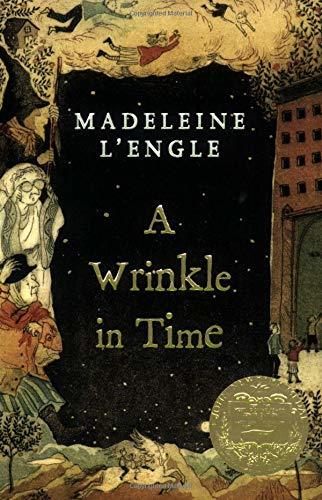
A Wrinkle in Time (Time Quintet)
By Madeleine L'Engle
Three Themes to Notice in Wrinkle:Difference and Conformity
As we see in this very first chapter, the theme of difference and conformity runs through Wrinkle. Here are some questions to ask as you read: why does society have such an adverse reaction to difference? Is conformity necessarily a bad thing? Is difference necessarily a good thing? What role does fear play in conformity? How does love overcome fear and perfect difference?
Science and WonderThis book is properly science fiction, and many of the concepts L’Engle deals with (Tesseracts, for instance) are theories in physics. L’Engle spent a lot of time reading up on physics to write the book, and physics was a lifelong interest for her. Some scientists and Christians wondered if this was at odds with her religious faith, but L’Engle saw no conflict. For her, science threw open the windows of wonder, deepening and enlivening her faith. This is a central theme in the book. Here are some questions to keep in mind as you read: does science make the world seem less wonderful? Is science opposed to mystery and spirituality?
Love and BraveryIt is a truism that love conquers all, but this book is a true exploration of the extent to which this is true. The story suggests that the solution to difference is not tolerance, but love. That the bulwark against despair is not optimism, but love. As you read this book, keep these questions in your mind: what is love? Does love have the capacity to conquer despair? In what practical ways does love sustain the battle for goodness and hope?
DISCUSSION QUESTION: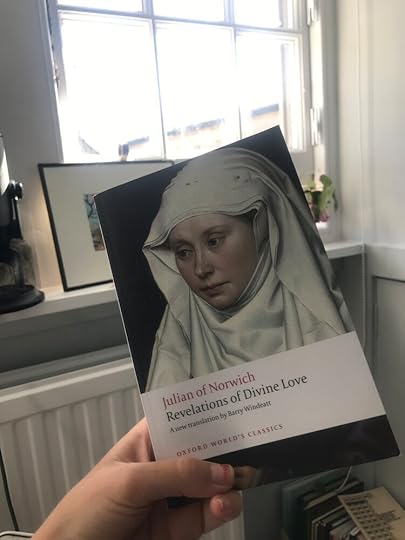
P.S. Patreon book club…
We’ll be reading and discussion Julian of Norwich’s Revelations of Divine Love on my Patreon. It is the first book written in english by a woman, and describes her visions of Christ after a near death experience. It is a classic in the Christian mystical tradition, and has encouraged me very much. I'll do the podcast book club for the $10 tier (podcasts belonging in that tier originally). So if you want to join the book club, make sure you're in that tier by June 15th (but wait till after June 1st, if you want to avoid getting charged for May).
May 31, 2020
Big Brothers
I have two big brothers.
They’re older than me, sure, but they’re also Big: 6’3 and 6’5. They’re strong, they can carry my lumpy suitcases from the airport. I feel safe when I walk downtown at night in their hefty shadows. They’re imposing, I suppose, but they harmless because they are good. I have seen them cradle my niece in those big arms, hold my dead dog’s body with tears running down their noses, pluck the strings of a guitar absent mindedly.
This week, a video set America on fire. It showed a big man, trying to act small so four men wouldn’t kill him. He wasn’t doing anything wrong. He accepted, without reviling, the unreasonable demands of unreasonable men, with murder in their hearts.
George Floyd was even bigger than my brothers, a 6’6 wall of man. People called him a gentle giant, said he pulled pools into parking lots to baptise kids, that he always stayed late at his job to make sure everything was all cleaned up. A ministry leader in his native Houston called him “a Man of Peace.” But no amount of gentleness could save his life. No polite entreaties to let him breathe, would lift a knee from his neck.
Because just by existing in the world, his big black body was a liability.
When I see pictures of his big self standing with his friends, I think of my big brothers. I think about how I’ve never been afraid of a policeman killing them. I’ve never encouraged them to look less threatening, never worried someone would call the police if they lingered too long. I’ve never worried that if they were stopped for a speeding ticket (as they both have been on numerous occasions) that it might be lethal.
I’ve never thought their big bodies would be liability.
That’s because America doesn’t see my brothers the same way it sees George Floyd.
Here, my words fail. I am bewildered. I only know I want to be a part of the cure and not the sickness, that I wish I had done something earlier. But there is today. I am listening to the experience of my black friends, I want to leverage what little power I have to protect, to bring justice and equity, to comfort. To be a part of the long term change.
To give the fury of my little sister heart to the memory of Big Floyd.
May 27, 2020
Summer Book Club!

A book, too, can be a star, “explosive material, capable of stirring up fresh life endlessly,” a living fire to lighten the darkness, leading out into the expanding universe.
— Madeline L'Engle, a Wrinkle in Time
After two summers of literary camaraderie and invigorating discussion, Reading with Joy is back!
This summer Speaking with Joy's online summer book club will be exploring the suspenseful, captivating, scientific young adult novel a Wrinkle in Time by Madeleine L'Engle. This was one of the first books I really loved as a young girl, which opened my mind to the grandeur of the universe and attuned my heart to the mystery that made it all. Read more about this captivating classical below…
Back Cover of Wrinkle in Time:It was a dark and stormy night; Meg Murry, her small brother Charles Wallace, and her mother had come down to the kitchen for a midnight snack when they were upset by the arrival of a most disturbing stranger.
"Wild nights are my glory," the unearthly stranger told them. "I just got caught in a downdraft and blown off course. Let me sit down for a moment, and then I'll be on my way. Speaking of ways, by the way, there is such a thing as a tesseract."
A tesseract (in case the reader doesn't know) is a wrinkle in time. To tell more would rob the reader of the enjoyment of Miss L'Engle's unusual book. A Wrinkle in Time, winner of the Newbery Medal in 1963, is the story of the adventures in space and time of Meg, Charles Wallace, and Calvin O'Keefe (athlete, student, and one of the most popular boys in high school). They are in search of Meg's father, a scientist who disappeared while engaged in secret work for the government on the tesseract problem.

A Wrinkle in Time (Time Quintet)
By Madeleine L'Engle
BUY FROM YOUR LOCAL BOOKSTORE!This is how it will work:Read one chapter a weekListen to each episode where I discuss the book with a different friend each timePost your thoughts on Instagram, Twitter, or Facebook.… optional: it is a book club so I really encourage you to invite a friend to read the book with you.We start June 15!
Read chapter one by then!I can’t wait!

P.S. Patreon book club.
We’ll be reading and discussion Julian of Norwich’s Revelations of Divine Love on my Patreon. It is the first book written in english by a woman, and describes her visions of Christ after a near death experience. It is a classic in the Christian mystical tradition, and has encouraged me very much. I'll do the podcast book club for the $10 tier (podcasts belonging in that tier originally). So if you want to join the book club, make sure you're in that tier by June 15th (but wait till after June 1st, if you want to avoid getting charged for May).
May 19, 2020
The Soul in Paraphrase

Michelino, 1465.
Here power failed my high imagining;
but, like a smoothly moving wheel, that Love
was now revolving my desire and will,
which moves the sun and all the other stars.
— Paradisa, Canto 33
Join me on today’s episode, a conversation with Dr Matthew Rothaus Moser about the transformation of love in Dante's Divine Comedy.
It was such a delight to record this episode with my long time Twitter-friend Dr. Matthew Rothaus Moser, exploring the mysteries of fallen and glorified love, of becoming the image of Christ for each other, and of Dante’s obsession with symbolic numerology. The Divine Comedy is one of the pillars of western literature, and I have long desired to record an episode that would provide an accessible introduction to this poetic, strange, beautiful masterpiece. Dr Rothaus Moser plays the perfect Virgil, guiding us through Dante’s realms of heaven, hell, and purgatory with deep knowledge and warm enthusiasm. And as an extra treat, we also discuss 1990’s CCM music and morning sanity routines. Listen and enjoy!
The ‘Soul in Paraphrase’The phrase “the soul in paraphrase” comes from a poem by the 17th century Anglican priest George Herbert. Though written centuries before Herbert penned this keen and evocative line, Dante’s Commedia is one of the great imaginative depictions of the soul in paraphrase. The Commedia tells us the well-known story of the soul’s journey from sin and death to salvation and transformation. But it tells that story with new words and in different ways than we might expect. It does this so that we might see ourselves and our souls better through its paraphrase. In his letter to his patron, Can Grande Della Scala, Dante himself describes the pilgrim’s journey through the three realms of the afterlife (inferno, purgatory, and paradise) as allegories of our souls in different spiritual states. Inferno then paraphrases the soul that has abandoned all hope, despaired of God’s mercy, and lost itself in the dark wood of sin. Purgatorio paraphrases the soul’s journey into grace, forgiveness, healing, and freedom. And Paradiso gives us the paraphrase of the soul healed by mercy, perfected by grace, infused with glory, and re-made in the holy fires of divine love.

Today’s Guest: Dr. Matthew Rothaus MoserMatthew Rothaus Moser received a PhD in theology from Baylor University. He has been teaching at Loyola University Maryland as lecturer in Theology since 2013 but will begin as Assistant Professor of Theology in the Honors College at Azusa Pacific University in the Fall of 2020. He is the author of Love Itself is Understanding: Hans Urs von Balthasar’s Theology of the Saints and of the forthcoming Dante and the Poetic Practice of Theology. He tweets at @M_Rothaus_Moser.If you enjoyed today’s podcast, you will love this lecture by Peter Hawkins (referenced in the episode). Below are the translations Dr. Moser most highly recommends for readability.
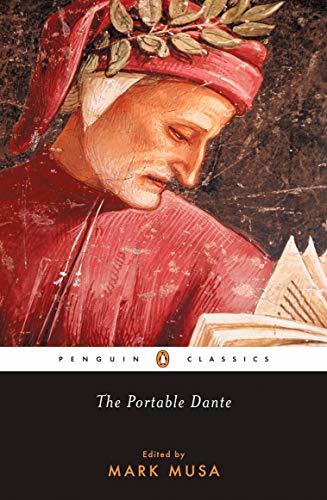
The Portable Dante (Penguin Classics)
By Alighieri, Dante
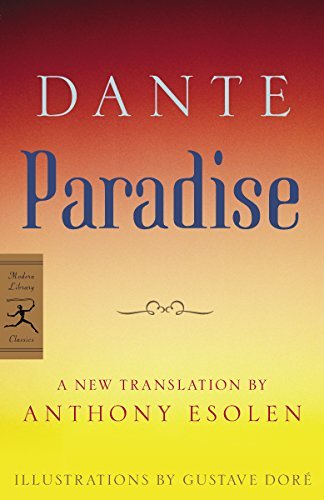
Paradise (The Divine Comedy)
By Dante
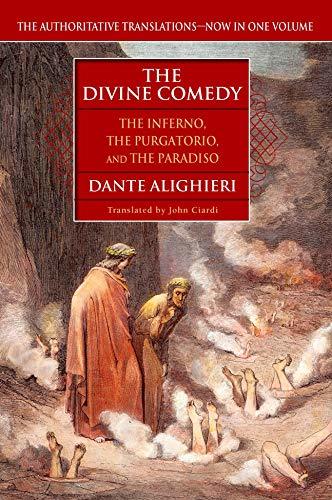
The Divine Comedy (The Inferno, The Purgatorio, and The Paradiso)
By Alighieri, Dante
Matt’s book… (if you’re at an academic institution, you may want to request it for the library!)
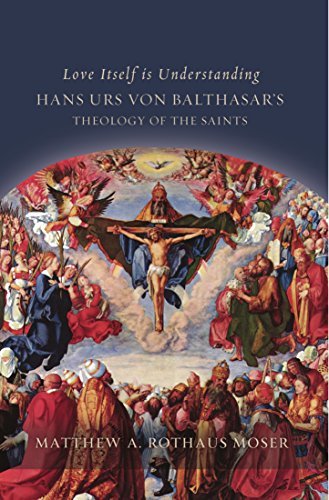
Love Itself Is Understanding: Hans Urs von Balthasar's Theology of the Saints
By Moser, Matthew A. Rothaus
Thanks for listening, friends! If you enjoyed this week’s episode, do me a favour and leave a review on iTunes!
May 11, 2020
May Magnificat
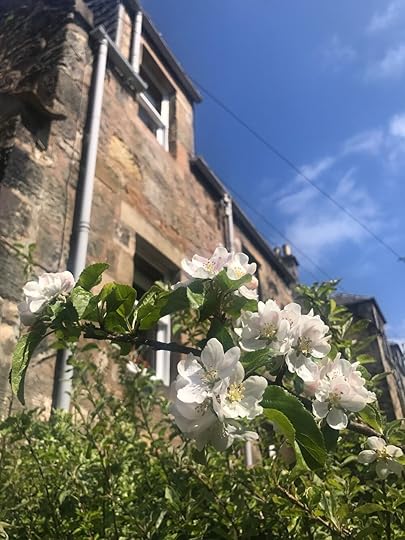
Join me on the stoop of my flat in Scotland to listen to birdsong, bells, and three poems celebrating the glory of Spring.

i thank You God for most this amazonby: e e cummings i thank You God for most this amazing
day:for the leaping greenly spirits of trees
and a blue true dream of sky;and for everything
which is natural which is infinite which is yes
(i who have died am alive again today,
and this is the sun's birthday; this is the birth
day of life and love and wings and of the gay
great happening illimitably earth)
how should tasting touching hearing seeing
breathing any-lifted from the no
of all nothing-human merely being
doubt unimaginable You?
(now the ears of my ears awake and
now the eyes of my eyes are opened)
(in 'complete poems 1904 - 1962')
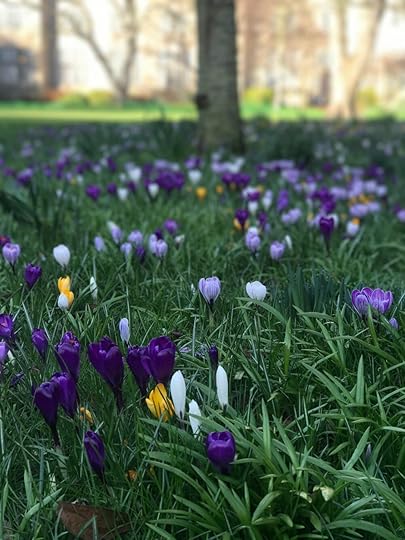
May Magnificatby Gerard Manley HopkinsMay is Mary's month, and I
Muse at that and wonder why:
Her feasts follow reason,
Dated due to season—Candlemas, Lady Day;
But the Lady Month, May,
Why fasten that upon her,
With a feasting in her honour?Is it only its being brighter
Than the most are must delight her?
Is it opportunest
And flowers finds soonest?Ask of her, the mighty mother:
Her reply puts this other Question:
What is Spring?—
Growth in every thing—Flesh and fleece, fur and feather,
Grass and greenworld all together;
Star-eyed strawberry-breasted
Throstle above her nestedCluster of bugle blue eggs thin
Forms and warms the life within;
And bird and blossom swell
In sod or sheath or shell.All things rising, all things sizing
Mary sees, sympathising
With that world of good,
Nature's motherhood.Their magnifying of each its kind
With delight calls to mind
How she did in her stored
Magnify the Lord.Well but there was more than this:
Spring's universal bliss
Much, had much to say
To offering Mary May.When drop-of-blood-and-foam-dapple
Bloom lights the orchard-apple
And thicket and thorp are merry
With silver-surfed cherryAnd azuring-over greybell makes
Wood banks and brakes wash wet like lakes
And magic cuckoocall
Caps, clears, and clinches all—This ecstasy all through mothering earth
Tells Mary her mirth till Christ's birth
To remember and exultation
In God who was her salvation.
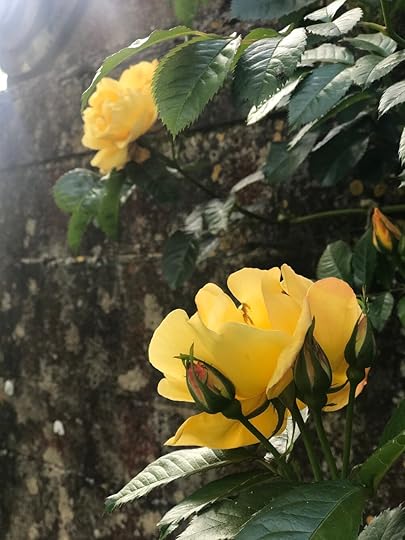
Todayby Billy CollinsIf ever there were a spring day so perfect,so uplifted by a warm intermittent breezethat it made you want to throwopen all the windows in the houseand unlatch the door to the canary's cage,indeed, rip the little door from its jamb,a day when the cool brick pathsand the garden bursting with peoniesseemed so etched in sunlightthat you felt like takinga hammer to the glass paperweighton the living room end table,releasing the inhabitantsfrom their snow-covered cottageso they could walk out,holding hands and squintinginto this larger dome of blue and white,well, today is just that kind of day.
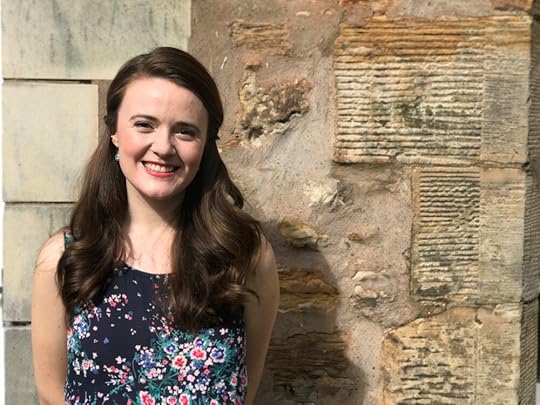
Happy May, Friends!
May 5, 2020
Good Stories of Good Men

Me and my brother Nathan
A good man is hard to find, but it’s even harder to be.
Manhood is in crisis. We live in a world where men are traumatised and traumatising. Suicide is one of the leading causes of death for men under forty five, 85% of domestic abuse is committed by men, 80% percent of men regularly view pornography. A heavy cloud rests on the men of this generation. But behind all of this darkness, there lurks a God given desire for wholeness, bravery, goodness.
Men want to be good men. But where do you begin?These are the questions my brother Nathan’s new book Good Man lean into. This book taps into that desire to be good, brave, gentle, and helps men think about how they can grow in that direction. It is a beautiful collection of personal essays about qualities that make a good man (adventurous, devout, honest, emotional, simple, romantic, wise, committed, etc.), designed to help men aspire to a healthy masculinity.
The first story, about his thirteenth birthday made tears spring into my eyes; I remember that tender teen, and have been privileged to watch him grow into a softer and yet stronger man over the past twenty years. I'm proud of him, and I know his humble and hopeful words will help many men. Watch the trailer attached above to get a sense of the book!
We can only become what we can imagine, and that’s why we need good stories of good men to aspire to.From Poirot to Aragorn, in today’s episode, Nathan and I discuss the Good Men of literature and film that have inspired us, and the qualities that make them great.Listen in and buy Nathan’s new book!Get a copy for the aspiring Good Men in your life…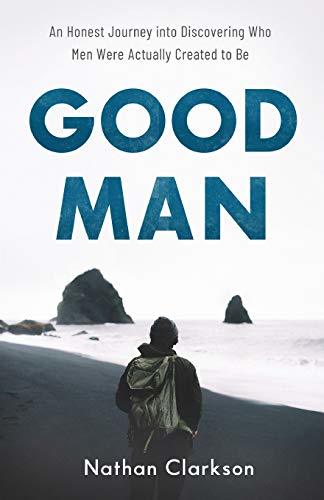
Good Man: An Honest Journey into Discovering Who Men Were Actually Created to Be
By Clarkson, Nathan
Today’s Guest: Nathan Clarkson

Nathan Clarkson is an actor, best-selling author, filmmaker, and all around creative person with a passion to inspire people to know their creator and live the story God has for them to tell.
Nathan has appeared in national commercials, TV-shows, and major feature films. As a filmmaker Nathan’s original movies have appeared on Netflix, Amazon Prime, Pureflix and more. With his company, Clarkson Creations, Nathan has produced such indie hits as Confessions of a Prodigal Son, The Unlikely Good Samaritan, and the upcoming Christmas film Miracle on Highway 34, each starring himself alongside Hollywood stars and Oscar Nominated actors.
Nathan released his first book Different; a personal memoir of stories and thoughts about how God uses the "differences" in our lives to tell the story He has for us to tell. The book quickly became a national best seller, inspiring thousands to embrace their differences. Nathan was featured and interviewed on NBC's Today Show with Kathie Lee and Hoda.
Nathan’s next book project is called Good Man, which seeks to discover who men were created to be through collections of Nathan’s personal and raw stories, thoughts, and insights.
Nathan’s words have been featured and quoted in outlets like The LA Times, The Gazette, and Publisher's weekly, The Christian Post, Religion News Network, and more.
Nathan was and is constantly described as "different", and even though Nathan struggled (and still does) with depression, anxiety, and was diagnosed with OCD, ODD, ADHD, and other learning disabilities- With God's help Nathan was able to take what many would see as "disorders" and "problems" and turn them into "superpowers".
Nathan lives with his wife Keelia Clarkson in New York City but can often be found in Los Angeles, Colorado Springs, or adventuring around the country and world speaking and sharing his passion for helping people better know their Creator and the story He has for them to tell. Nathan is a imperfect but dedicated Jesus follower, passionate about revealing truth, beauty, true love, and purpose through the beautiful art of story.
Nathan loves going to movies, traveling, carbs, playing Apex Legends, informal theological debates, indie music, washing his hands, and his Golden Retriever, Darcy.

Here picture: Good Man, Nathan Clarkson and the Darcy Dog
Our Favourite Heroes…

Aragorn of Lord of the Rings
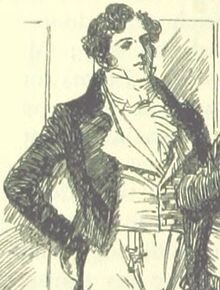
Mr Knightley of Jane Austen’s Emma.

Alfie Boe as Jean Valjean from Les Miserables

David Suchet as Agatha Christie’s Poirot.

Gregory Peck as Atticus Finch in To Kill a Mockingbird

Gilbert Blythe of Anne of Green Gables
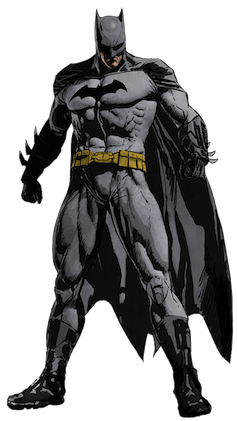
Bruce Wayne, i.e. Batman
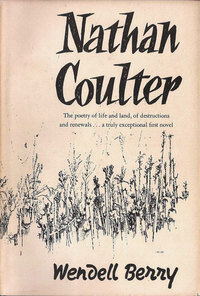


Good Man: An Honest Journey into Discovering Who Men Were Actually Created to Be
By Clarkson, Nathan
Mentioned in Today’s Episode…
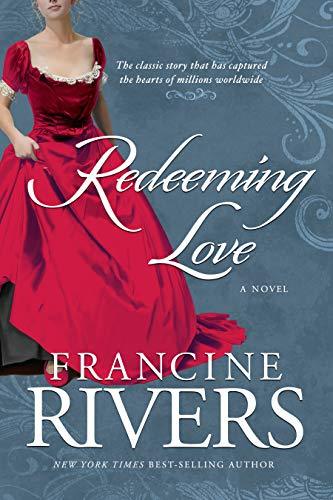
Redeeming Love
By Rivers, Francine
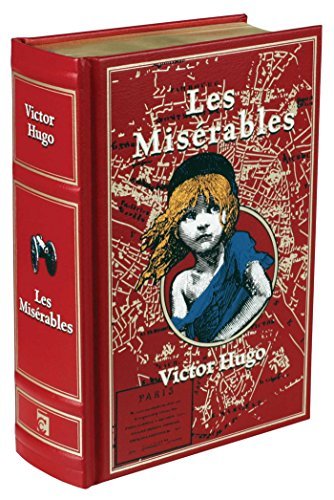
Les Miserables
By Victor Hugo
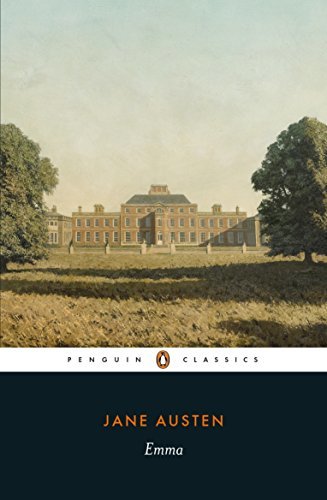
Emma (Penguin Classics)
By Austen, Jane
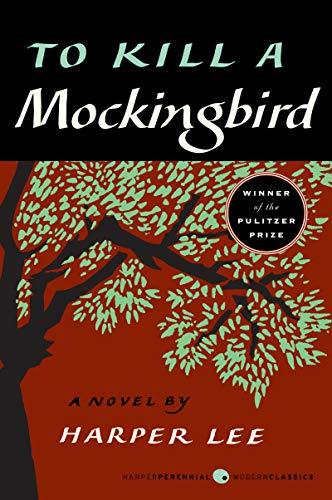
To Kill a Mockingbird
By Harper Lee
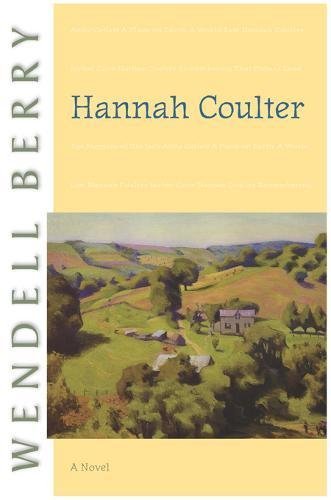
Hannah Coulter
By Berry, Wendell
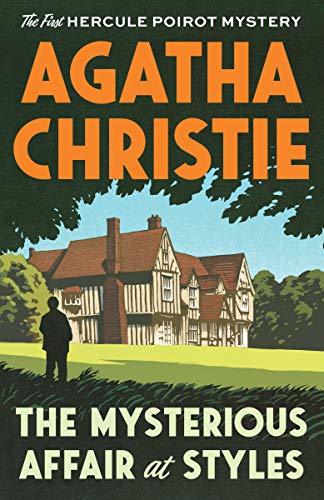
The Mysterious Affair at Styles: The First Hercule Poirot Mystery
By Christie, Agatha
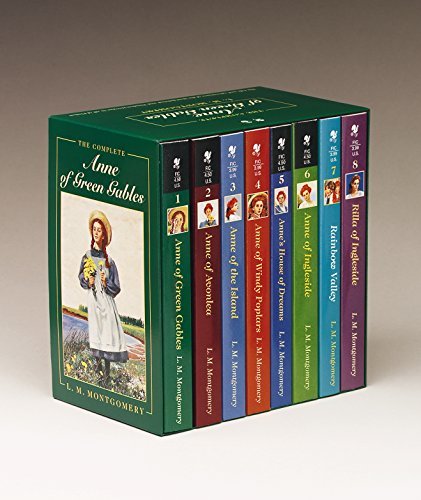
Anne of Green Gables, Complete 8-Book Box Set: Anne of Green Gables; Anne of the Island; Anne of Avonlea; Anne of Windy Poplar; Anne's House of ... Ingleside; Rainbow Valley; Rilla of Ingleside
By Montgomery, L. M.
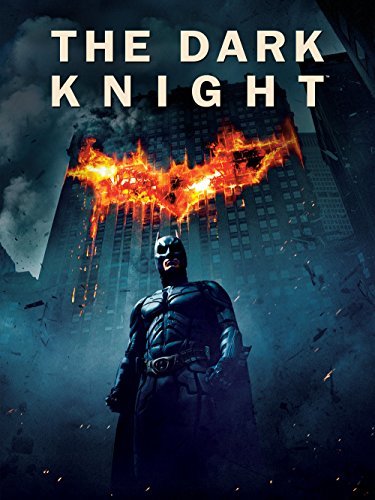
The Dark Knight
Starring Christian Bale, Michael Caine, Heath Ledger, Gary Oldman, Aaron Eckhart, Maggie Gyllenhaal, Morgan Freeman
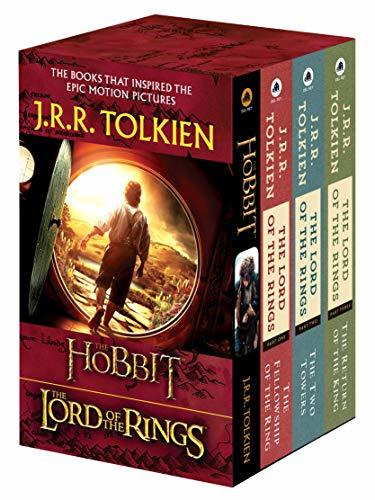
J.R.R. Tolkien 4-Book Boxed Set: The Hobbit and The Lord of the Rings
By Tolkien, J.R.R.
May 1, 2020
Golden Fury (with Samantha Cohoe)

Did you know modern chemistry began as an attempt to turn lead into gold? Enjoy this delightful conversation with historical fiction author Samantha Cohoe about alchemy, story telling, and lipstick!Alchemy:
I’ve been interested in Alchemy every since I discovered its prevalence as a metaphor in literature. Many books call on the three stages of alchemy (black, white, and red) as a metaphor for transformation or resurrection. Alchemy finds its way into Dante, Chaucer, and none other than JK Rowling. Where on earth did this imagery come from?
On today’s episode, I chat with Samantha Cohoe, who researched Alchemy in depth for her upcoming novel Golden Fury, about a young alchemist about to achieve the Philosopher’s stone. Below, find a few links to the history of alchemy, and it’s use in theology and literature.
In her article “Alchemy and Religion in Christian Europe” Tara Nummedal of Brown University describes Martin Luther’s fondness for Alchemy as both a science and a rich source for spiritual metaphors:
“The science of alchymy I like well, and, indeed, ‘tis the philosophy of the ancients,” he reportedly told his companions. While Luther welcomed “the profits it brings in melting metals, in decocting, preparing, extracting, and distilling herbs, [and] roots,” he was drawn to it in the context of his faith as well. “I like it also for the sake of the allegory and secret signification, which is exceedingly fine, touching the resurrection of the dead at the last day,” he observed. For, as in a furnace the fire extracts and separates from a substance the other portions, and carries upward the spirit, the life, the sap, the strength, while the unclean matter, the dregs, remain at the bottom, like a dead and worthless carcass; even so God, at the day of judgment, will separate all things through fire, the righteous from the ungodly. The Christians and righteous shall ascend upward into heaven, and there live everlastingly, but the wicked and the ungodly, as the dross and filth, shall remain in hell, and there be damned. (Ambix, Vol. 60 No. 4, November, 2013, 311–322)
Today’s Guest: Samantha Cohoe
Samantha Cohoe was raised in San Luis Obispo, California, where she enjoyed an idyllic childhood of beach trips, omnivorous reading, and writing stories brimming with adverbs. She attended Thomas Aquinas College, a Great Books college in California, and graduated with a BA in liberal arts. After studying Philosophical Theology at Yale Divinity School, she decided academia wasn’t for her.
In the midst of marriage, child-bearing, and the identity crisis that followed, she rediscovered her early love of writing and adverbs. In 2011, she moved with her family to Denver, where she currently divides her time between teaching Latin, mothering, writing, reading, and deleting adverbs.
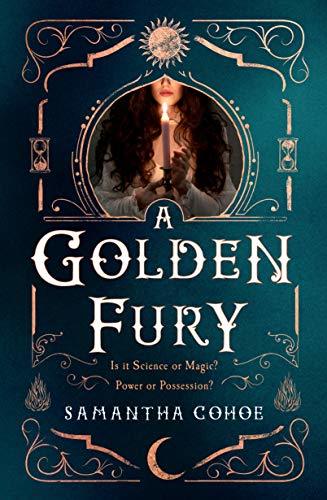
A Golden Fury
By Cohoe, Samantha
Thea Hope longs to be an alchemist out of the shadow of her famous mother. The two of them are close to creating the legendary Philosopher’s Stone—whose properties include immortality and can turn any metal into gold—but just when the promise of the Stone’s riches is in their grasp, Thea’s mother destroys the Stone in a sudden fit of violent madness.
While combing through her mother’s notes, Thea learns that there’s a curse on the Stone that causes anyone who tries to make it to lose their sanity. With the threat of the French Revolution looming, Thea is sent to Oxford for her safety, to live with the father who doesn’t know she exists.
But in Oxford, there are alchemists after the Stone who don’t believe Thea’s warning about the curse—instead, they’ll stop at nothing to steal Thea’s knowledge of how to create the Stone. But Thea can only run for so long, and soon she will have to choose: create the Stone and sacrifice her sanity, or let the people she loves die.
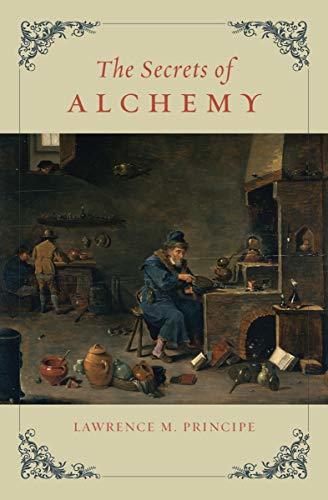
The Secrets of Alchemy (Synthesis)
By Principe, Lawrence M.
April 27, 2020
Going on a Quest!

At one point midway on our path in life,
I came around and found myself now searching
through a dark wood, the right way blurred and lost.
... My theme will be the good I found there.
— Dante Alighiere, Inferno
Escape into the stories about people who go places (while we cannot!) and explore role of narrative in developing virtue… listen below!
I often find myself accidentally reading around a theme. I don't know if this happens subconsciously (I read one theme, and my subconscious sets about being attracted to other similarly themed readings), of if it is the product of what one of my friends calls "book providence." Lately, my theme has been that of quest, journey, pilgrimage, and the secondary theme of lostness.
Recently, I’ve been listening to the audible version of the Odyssey narrated by Ian McKellan, i.e. Gandalf. I have been enjoying this thoroughly, especially as it is a classic and I have no memory of reading it (though my mother swears we did when I was a youngster). The premise of the story is that Odysseus's journey homeward. We begin the story when he has already been away a long time, long enough for his only son to have grown into a man. In the opening Athena complains to Zues that Odysseus is a good man, and that he should be allowed to return to his family, and that they should help him. But will Odysseus find his way home? And will his wife have been faithful for all these years? We hold our breath and read on.
The theme of journeying, of setting out to reach a destination or retrieve some treasure, or best of all, to make it home, is one of the most popular in literature. There's the Exodus in the Old Testament, Dante's Comedia, Lord of the Rings, Gulliver's Travels. Common to many of these is the idea of a quest, a word which gives us our word "question"; the traveler, the pilgrim, the wayfarer seeks something, somewhere, some answer. The story shapes itself around the pursuit of that thing, the trials that frustrate the success of the quest. So powerful is this literary trope, that Saint Augustine used it to describe the Christian life as a pilgrimage, straining for a destination they cannot reach in life. In doing this, he draws from Hebrews 11:
All these people were still living by faith when they died. They did not receive the things promised; they only saw them and welcomed them from a distance, admitting that they were foreigners and strangers on earth... If they had been thinking of the country they had left, they would have had opportunity to return. Instead, they were longing for a better country—a heavenly one. Therefore God is not ashamed to be called their God, for he has prepared a city for them.
This week I also began re-reading Dante's Comedia, a traveler's tale which ends up in the highest courts of heaven. What I love about both the Comedia and the Odyssey is that they begin in the middle of the quest ("midway on our path in life" as Dante puts it); Odysseus trapped on an Island, Dante trapped and terrified in a mysterious wood. They're mired, confused, tired, not convinced they're actually going anywhere, that Odysseus will ever make it home, that Dante will make it to heaven. The primary mood is one of perplexity and weariness. What i also love is Dante's assurance that it was in the very midst of this confusion that his soul began to learn the lessons he would need to reach heaven; "My theme will be the good I found there." The good he found in the dark wood, when his soul was lost, and the way toward the straight path was blurred.
I don't know about you, but I feel like we have officially reached the midway point of this strange season. I've reached the end of the novelty, and I've given up thinking there will be a clear or easy end to this quarantine. Trying to make plans about when to submit my Phd, or where to live this fall, or how to plan the coming weeks, can feel like the dream state of Dante, wandering around the woods, a little tired, and wondering where the end will be. But I'm comforted by Odysseus and Dante and the men and women of Hebrews, because it was in the midst of the mire that they were being most brave.
For the last tutorial of the Christian Ethics course I taught, we read the last chapter of Alasdair MacIntyre's excellent book After Virtue. In it, he seeks to define what gives life a "unity" a sense of coherent purpose and beauty. In short, what the "good life" is. I would summarize his answer like this: Seeking the Good in community, and virtues are things which sustain us in our pursuit of the good in community. For MacIntyre, a Roman Catholic, the Good is God, toward whom we strain with our whole being to be in union with, but just like the faithful people of Hebrews, the completion of our journey is out of sight in this world. The Good Life, then, is journeying toward God in community (the church), and becoming virtuous person is developing what strengths you need for the journey. It's a beautiful vision, but it also reminds us: most of life, therefore, happens in the "dark wood." We do most of our becoming in the dark wood. And if we keep pressing through toward the good we cannot see, we develop the muscles to become a pilgrim as courageous as Dante, Odysseus, Beatrice.
Quest Narratives… Begin with the end in mind…
Involve Companions for the journey…

Finds its culmination in homecoming…
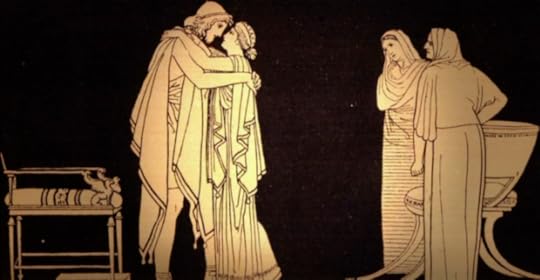
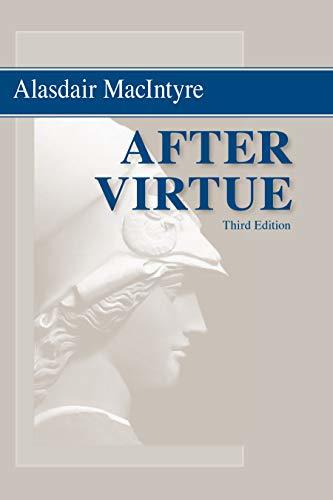
After Virtue: A Study in Moral Theory, Third Edition
By MacIntyre, Alasdair
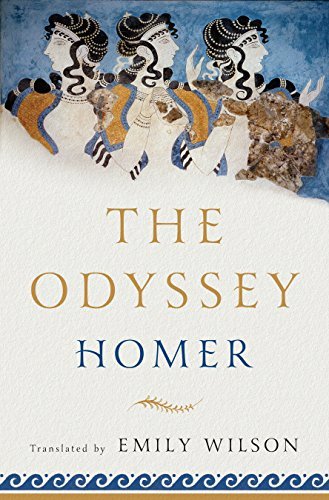
The Odyssey
By Homer
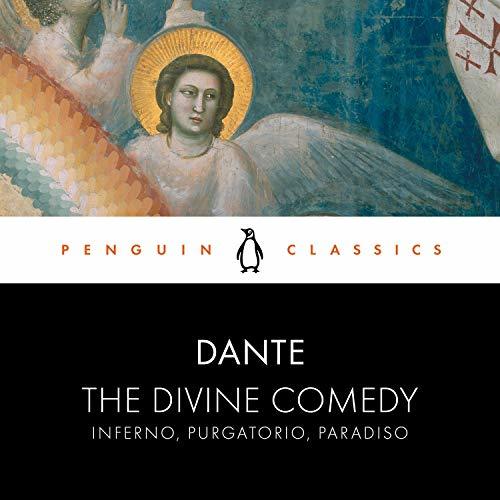
The Divine Comedy: Penguin Classics
By Robin Kirkpatrick, Dante Alighieri
April 21, 2020
...

We can’t belong to a place unless we know it. And we can’t know it if we don’t pay attention.
I’m one of the lucky ones: my flat has a small garden that has provided much sanity in the housebound days. I’ve enjoyed every inch of the small space, reading in the patch of grass, pacing back and forth to release pent up energy, plucking leaves and flowers to brighten corners of my house with living things. Being forced to enjoy this and only this corner of the world has made me realise the abundance of life that can be contained in one little postage stamp of land. For instance, after finding little feather picture above and wondered what bird it belonged to, I posted it on my Patreon, and one of my clever patrons (Emma) discovered that it belonged to a Eurasian Woodcock.

It may seem a silly thing, but it was wondrous to discover that this strange little creature had been poking around in my backyard. I’m so used to living portably, not belonging anywhere too long, that i sometimes miss the richness of coming to thoroughly know and belong to the places I live, in all their startling particularity. This season has been an invitation to belong to this place, and only this place. To observe and delight in it. And though I itch to wander beyond these stone walls, I must confess: there’s more to love in this little garden than I expected.
We can’t belong to a place unless we know it. And we can’t know it if we don’t pay attention.In this episode, I spoke with Gracy Olmstead a writer whose interests span agriculture, exodus, and belonging, about how the places come from shape who we are, how we can befriend the places we live in now, and about how to be faithful to the places we have left. We talked how learning the landscape of our community through walking can introduce us to the history and people who live there, and even give us a deeper understanding of our own internal worlds. And of course, we talked about one of our favourite writers: Wendell Berry. This conversation was a breath of grace to my soul, and I hope it will be the same to yours.
Listen below…Today’s Guest: Gracy Olmstead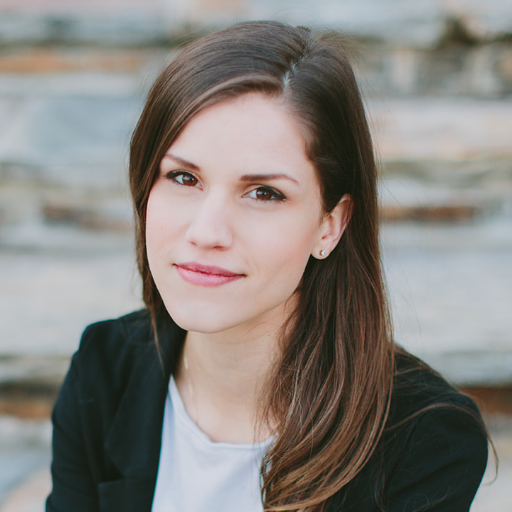
Gracy Olmstead is a writer and journalist located outside Washington, D.C. She's written for The American Conservative, National Review, The Federalist, and The Washington Times, among others. You can find her on Twitter, Facebook,or Instagram.

Gracy with the humble legend himself!
Wendell Berry's Right Kind of Farming - NYT Article

Hannah Coulter
By Berry, Wendell
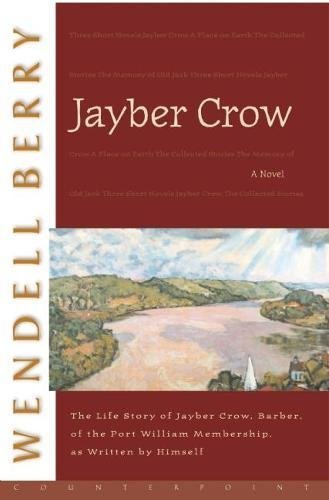
Jayber Crow
By Berry, Wendell
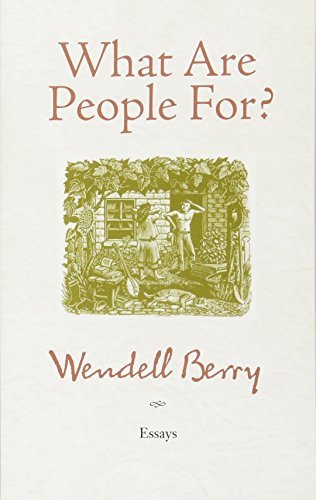
What Are People For?: Essays
By Berry, Wendell
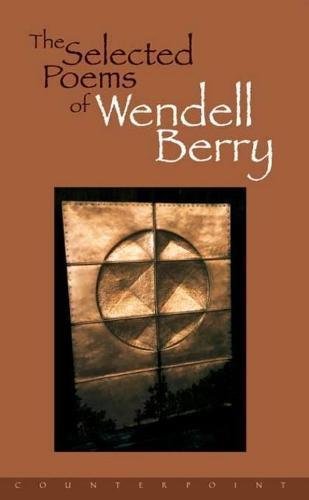
The Selected Poems of Wendell Berry
By Berry, Wendell
April 15, 2020
How to Make The Perfect Cup of Tea

French toast blintzes + perfect cups of tea
There are few hours in life more agreeable than the hour dedicated to the ceremony known as afternoon tea.
— Henry James, Portrait of a Lady
Join me in my kitchen while I make french toast blintzes and contemplate the excellencies of tea. Listen below…Joy's Favourite Tea:Ingredients:1 Yorkshire Gold Tea BagWhole MilkTurbinado Sugar
Instructions:
Boil water. Choose your favourite mug, preferably china, but if not, something on the thinner side (this keeps the tea hot!). When the water is boiled, pour a bit of water in the empty mug (sans tea bag), swish it around, and then toss it in the sink. This warms the mug so that your tea will brew strongly and be hot. Now that the mug is warm, put your Yorkshire Gold tea bag in and pour the boiling water directly onto the tea bag (you want the water to hit the tea before it hits the mug!). In the U.K. you can find Yorkshire Gold in any grocery store. In the U.S. you can find it at Whole Foods, World Market, or order it on Amazon. Yorkshire Red is also lovely; I alternate between the two. Let steep for four minutes. Pull the tea bag out with a spoon, gently pressing it against the side of a mug. Then add 1 heaping teaspoon of sugar, and a dollop of milk. I like my tea to be amber coloured. On the picture below, I usually go for a 3 or 4 on the colour scale. Stir well, and enjoy with a biscuit (I recommend McVitties Dark Chocolate Digestives!)
Enjoy!
Joy Marie Clarkson's Blog
- Joy Marie Clarkson's profile
- 227 followers



